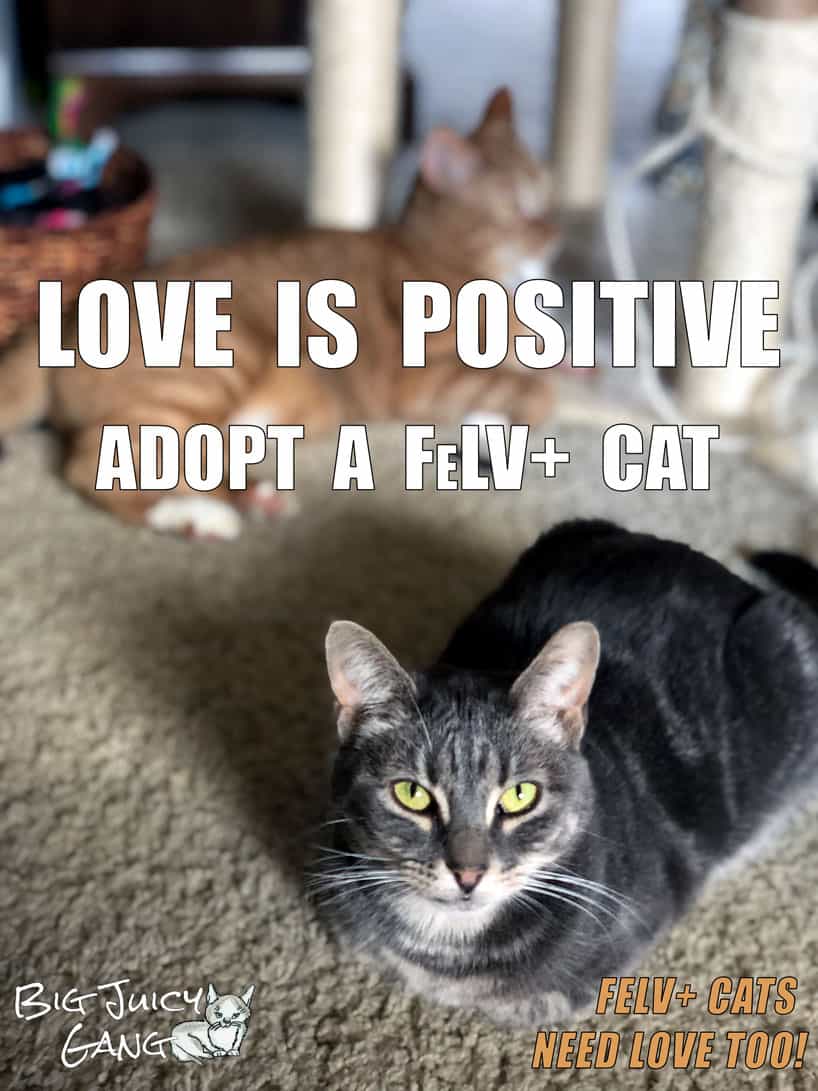Feline Leukemia
Frequently Asked QuestionsLearn
Feline Leukemia
What is Feline Leukemia (FeLV)?
FeLV stands for Feline Leukemia Virus. Although it sounds like a form of cancer, FeLV is actually a retrovirus. Once the virus is in the bloodstream it multiplies and attacks the bone marrow which is responsible for the production of red and white blood cells. This results in reduced immunity which makes it difficult for your cat to fight off other infections. It’s also a common cause of cancer in cats and various blood disorders.
How do cats get FeLV?
Feline leukemia is generally transmitted through contact with saliva from an infected cat. Other body fluids, like nasal secretions, urine, feces, and milk can also contain virus. Cat-to-cat transfer of the virus may occur from a bite wound, during mutual grooming, and (rarely) through the shared litter boxes and feeding dishes.
Can humans or other animals catch FeLV?
NO!
Feline leukemia only affects cats — it cannot be transmitted to people, dogs, or other animals.
What are the signs of FeLV infection?
Cats may have no signs during early stages, and then over weeks, months or even years, health may progressively deteriorate. A FeLV+ cat may have repeating cycles of illness with periods of relative good health.
If your cat becomes sick often and exhibits the following symptoms, they might be infected with feline leukemia:
- Loss of appetite
- Poor coat condition
- Enlarged lymph nodes
- Persistent fever
- Pale gums and other mucus membranes
- Inflammation of the gums (gingivitis) and mouth (stomatitis)
- Infections of the skin, urinary bladder, and upper respiratory tract
- Persistent diarrhea
- A variety of eye conditions (Conjunctivitis)
How do I know if my cat has FeLV?
If you suspect your cat is infected with feline leukemia, contact to your veterinarian immediately to perform a blood test.
Can FeLV-and FeLV+ cats live together?
While it is better not to, a negative cat and positive cat could live in the same house, as long as they do not have contact with each other. If cats share the same space/environment, some veterinarians recommend that negative cats be vaccinated against FeLv annually.
Can FeLV be treated?
There is no cure for FeLV, so most treatment of FeLV+ cats involves supportive care. Because FeLV+ cats have weaker immune systems, they do need to be treated for upper respiratory infections more often than FELV- cats.
How can I keep my FeLV+ Cat Healthy
Make sure FeLV+ cats have a low-stress lifestyle, receive proper nutrition, proper vaccinations from other diseases, parasite control and a low stress environment. Additionally, Regular vet checkups are crucial for maintaining health.
Some vets recommend using immune system-boosting medications like interferon and L-Lysine. Talk to your vet for the best course of treatment.
Can FeLV+ cats have a good life?
Of course and they deserve to!
Although a diagnosis of FeLV can be emotionally devastating, it is important to realize that cats with FeLV can live normal lives for prolonged periods of time.
It is important to remember that FeLv+ cats should be taken to a veterinarian if any health issues arise, as quick treatment is essential for their well-being and ongoing health.
Many people who adopt and care for FeLV+ cats (Including me) describe it as a deeply rewarding experience, and that they would gladly do so again.
Disclaimer:
The author of this article is not a veterinarian. Your own veterinarian should always be your first source for treatment and care advice for a sick cat, regardless of the nature of the illness. This article is meant only to give you a starting place to do your own research so you can make an informed decision, should it ever become necessary.

